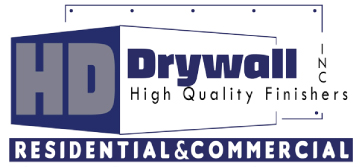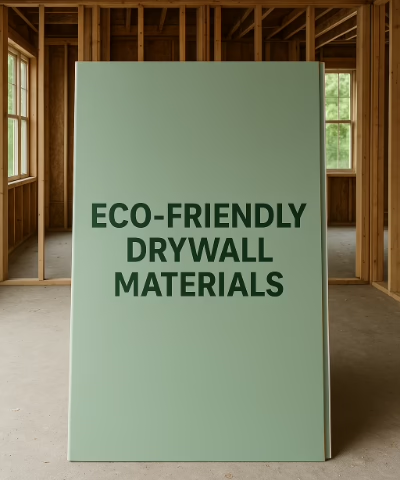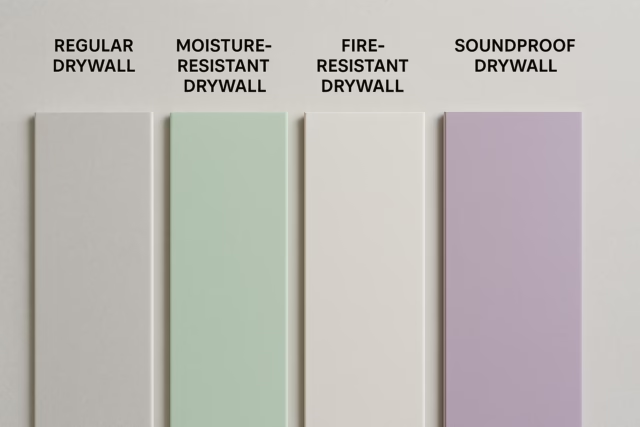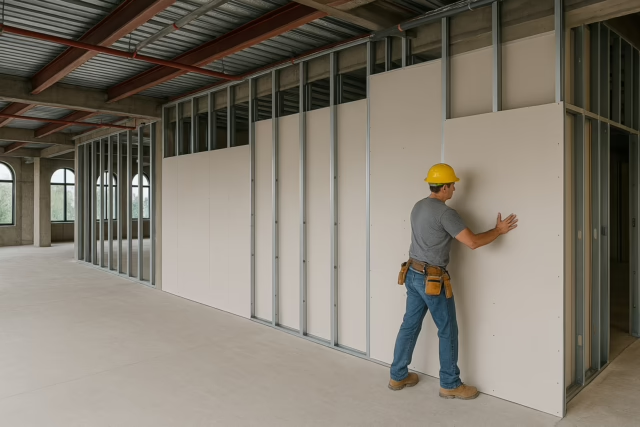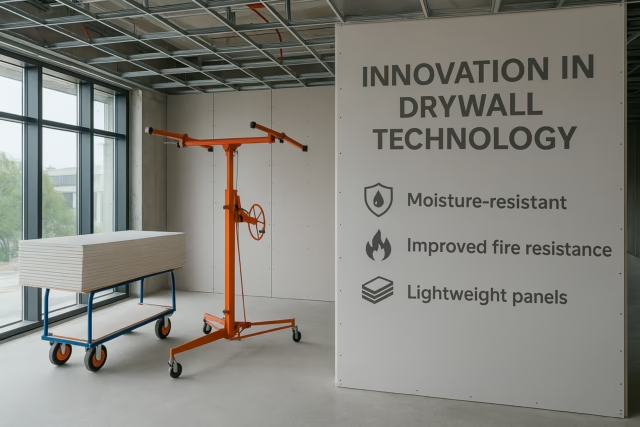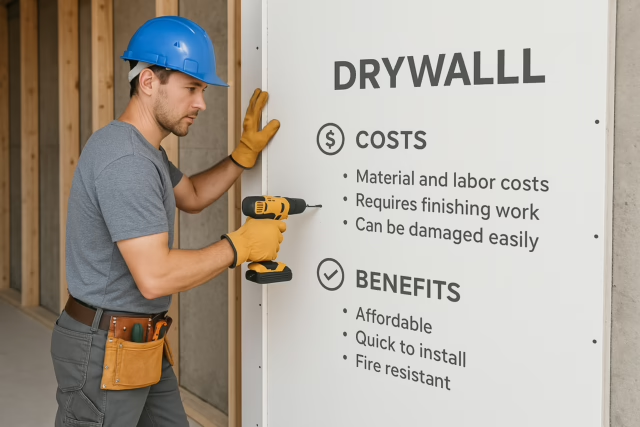Choosing the right building materials starts with understanding your options—and drywall is no exception. With advancements in performance and specialty applications, knowing the various types of drywall available is essential for both residential and commercial projects.
This comprehensive guide breaks down each drywall type, its ideal use, and how to select the best option based on your needs, budget, and building environment.
What Is Drywall and Why Does Type Matter?
Drywall, also known as gypsum board or sheetrock, is a widely used wall and ceiling finishing material composed of gypsum encased in paper. Although it may appear uniform, not all drywall is created equal. There are multiple types of drywall, each engineered to solve a specific construction challenge.
👉 Learn more about our drywall services and installation expertise on our Services page.
1. Standard Drywall (White Board)
This is the most common type, ideal for general interior spaces where moisture and fire resistance aren’t major concerns.
Best For:
- Living rooms
- Bedrooms
- Hallways
Thickness Options:
- 1/4″ to 5/8″
Pros:
- Affordable
- Easy to install
- Smooth finish
2. Moisture-Resistant Drywall (Green Board)
Green board drywall features a wax-coated paper surface to help resist moisture. It’s not waterproof but works well in humid areas.
Best For:
- Bathrooms (outside shower area)
- Laundry rooms
- Kitchens
Related Keyphrase: drywall for damp areas
Synonyms: water-resistant drywall, bathroom drywall
3. Mold-Resistant Drywall (Purple Board)
This type includes a special non-organic facing that deters mold and mildew growth. It’s commonly used in areas with higher humidity.
Best For:
- Basements
- Utility rooms
- High-traffic commercial spaces
Related Keyphrase: mold-resistant drywall
Synonyms: mildew-resistant board, antimicrobial drywall
4. Fire-Resistant Drywall (Type X and Type C)
Fire-rated drywall is thicker and contains non-combustible fibers to slow down heat transfer. It’s often required by building codes.
Best For:
- Garages
- Stairwells
- Shared walls in multifamily buildings
Related Keyphrase: fire-rated drywall
Synonyms: fireproof drywall, flame-retardant gypsum board
5. Soundproof Drywall
This specialty drywall uses multiple layers of gypsum and noise-dampening polymers to reduce sound transmission between rooms.
Best For:
- Home theaters
- Office conference rooms
- Multi-family housing units
Related Keyphrase: sound-dampening drywall
Synonyms: acoustic drywall, noise-control drywall
6. Lightweight Drywall
Engineered to be easier to handle without sacrificing performance, lightweight drywall is perfect for projects that require fast turnaround and reduced labor fatigue.
Best For:
- Large commercial installations
- Ceiling applications
Related Keyphrase: lightweight gypsum board
Synonyms: easy-install drywall, reduced-weight sheetrock
How to Choose the Right Type of Drywall
When selecting from the types of drywall, consider the following key factors:
Moisture Levels
- For damp spaces, go with green or purple board.
Fire Code Requirements
- Use Type X or C in code-mandated firewalls.
Acoustic Needs
- Choose soundproof drywall where privacy matters.
Budget & Installation Time
- Standard or lightweight drywall offers savings and speed.
Need help with selection or compliance? Contact HD Drywall for tailored recommendations.
Final Thoughts
Each type of drywall serves a distinct purpose. Selecting the correct one ensures your construction project is safe, efficient, and built to last. Whether you’re designing a quiet office, upgrading a bathroom, or meeting fire codes in a commercial building, there’s a drywall solution made for it.
At HD Drywall, we help you navigate your options and deliver expert installation with the right materials for every space.
Frequently Asked Questions
1. What is the most commonly used type of drywall?
Standard drywall is the most widely used in interior residential spaces due to its versatility and low cost.
2. Is green board good for showers?
No. Green board resists moisture but is not waterproof. Use cement board or waterproof drywall in shower areas.
3. Can I use soundproof drywall in residential homes?
Absolutely. It’s excellent for bedrooms, media rooms, or any space where noise control matters.
4. What drywall type should I use in a garage?
Type X fire-rated drywall is often required by code in garages and attached walls.
